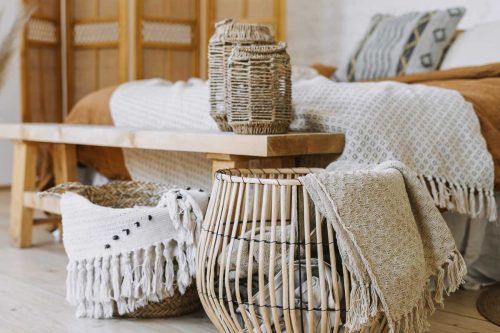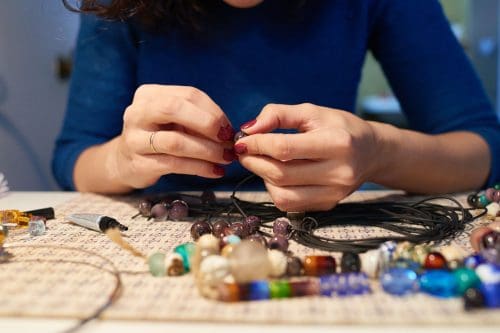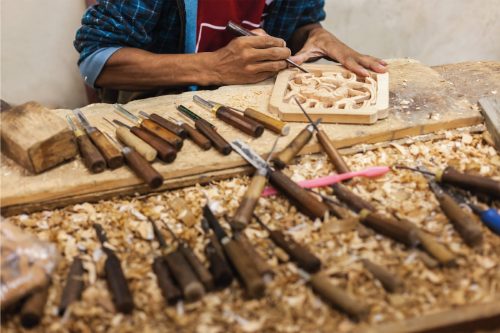When creating a project to be worn, such as a scarf, sweater, or blanket, it's essential to know how the finished piece will react when washed. Cotton is a popular, versatile, and inexpensive type of yarn that is easy to obtain. Does cotton yarn soften after it's washed? We've done some research and have some excellent information for you.
Cotton yarn will soften more with each washing. The individual strings that make up the yarn loosen and fluff with each wash and tumble dry, making the piece fluffier and larger. This could be a blessing if the yarn you started with was especially scratchy or stiff.
So we know cotton yarn will soften upon washing, but let's discuss this in a little more detail. We'll go over why the softening process happens, as well as answer some other questions you might have. Keep scrolling.

How is Cotton Yarn Made?
One of the best ways to understand why cotton yarn will soften as it's washed is to know how it's made. Once the cotton is harvested, it goes through a refining process where any impurities are combed out. The cotton is fluffed and then stretched into small individual fibers called slivers (pronounced sly-ver).
The yarn is then made by taking multiple slivers and twisting them together. The yarn is then ready to be dyed into a variety of colors. From here, the yarn might be made into clothing or left as yarn for knitting and crocheting.
View this cotton yard on Amazon.
Why is Some Cotton Yarn Softer Than Others?
The way the cotton is grown and then spun into yarn are the primary factors determining how soft the yarn will be. Organic cotton is thought to be much softer due to the lack of pesticides used when growing it. Additionally, the cotton yarn is often mixed with other fibers, which makes the yarn much softer than if it were cotton alone. For instance, cotton is often mixed with rayon to make the overall feel of the yarn more appealing.
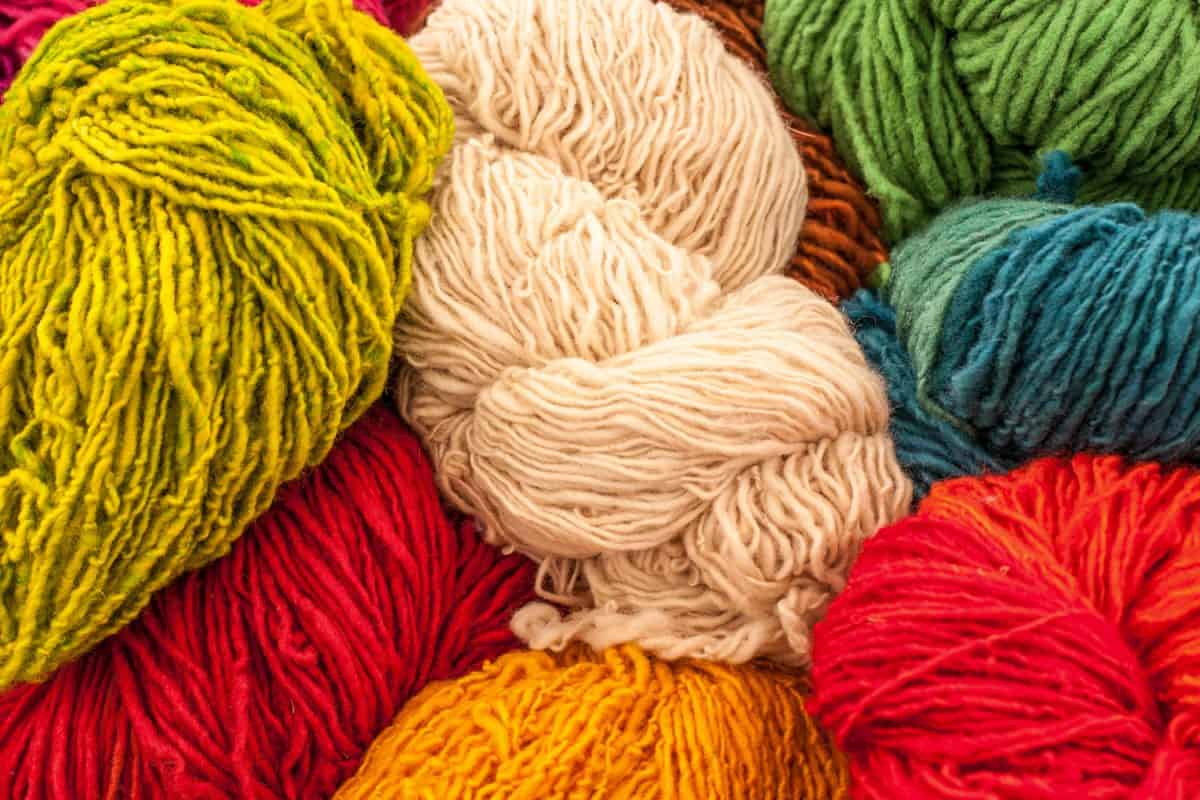
Can Cotton Yarn Get Too Soft?
Cotton doesn't have much natural elasticity, so it's important to keep in mind when you're trying to soften up cotton yarn not to stretch. Cotton will bounce back a small amount, but for the most part, once it's stretched, it's out of shape. Therefore, it is possible to get the individual fibers too fluffed and soft to a point where your project won't hold its shape. Don't go overboard.
How do you make cotton yarn softer?
Since we know cotton yarn can be made softer, let's discuss the how-to do so.
Cotton yarn is best softened before you start your project. As discussed above, making the yarn too soft is entirely possible, and cotton yarn doesn't have much of a memory. Because of this, it's best to take steps to soften the yard first. Not only does it ensure your finished project is soft and shapely, but soft yarn will also be much more pleasurable to work with!
Three methods are the most popular for softening yarn. Please note that it's best to keep loose yarn in a lingerie bag, so it doesn't get into a tangled mess.

Vinegar Soak
To soften using vinegar, add about a tablespoon of white vinegar to 4 cups of cool water. Allow the yarn to soak in the vinegar and water solution for about 30 minutes. Rinse thoroughly with cool water after soaking. Vinegar has a very strong smell, so you might consider a follow-up soak in cool water with a bit of laundry detergent. Squeeze out as much water as possible and lay the yarn flat to dry.
Washing Machine/Fabric Softener
Throw the lingerie bag full of yarn into a washing machine, ensuring you add fabric softener to the washer's dispenser to ensure it is added during the appropriate step in the cycle. Set the washer on the gentle or hand wash option using cold water. Once the wash is complete, lay the yarn out flat to dry.
If you'd prefer not to run the yarn through the washing machine, add a tablespoon or two of fabric softener to 4-6 cups of cool water. Allow the yarn to soak in the fabric softener solution for about one hour. Thoroughly rinse the yarn in cool water and lay it out flat to dry.
View this fabric softener on Amazon.
Hair Conditioner
Since cotton is a fiber, it makes sense that a conditioner made for your hair would help to soften it. Mix a tablespoon of conditioner into 6 cups of cold water. This might take some effort as the conditioner and water don't mix very well. Once thoroughly combined, soak the yarn in the mix for about 45 minutes. Rinse well with cold water and lay flat to dry.
Will washing yarn make it softer?
Just about any yarn will get softer after washing. The more an item is washed, the softer it will become. The hair conditioner method works well with just about any type of yarn and makes all textiles easier and more enjoyable to work with. Remember, it's easier to soften yarn before creating a project, though not at all impossible afterward.
Can you knit socks with cotton yarn? Check out our post about that!
How can I soften yarn without a fabric softener?
If you don't have a fabric softener, use hair conditioner in a pinch in the method discussed above. You can also try the vinegar method.
If you have some yarn you're not sure will take the conditioner or vinegar method well, you can even use a steamer to heat and moisten the fibers. Once you've used the steam cleaner on the yarn and it isn't too warm to touch, use your fingers to work the warmth and moisture into the fibers.
How do you soften cotton yarn after crocheting?
You can run your finished project through a gentle cycle in the washing machine after it's completed to help soften it up. Be sure to place the finished project in a lingerie bag, so it doesn't get twisted, gnarled, or stretched out of shape. Be sure you're using fabric softener.
If you've checked and you know your yarn is dryer safe, toss the whole lingerie bag with the project into the dryer along with some dryer sheets and tumble dry on low. This should make a huge difference in the softness of your project.
View these lingerie bags on Amazon.
In Closing
Cotton yarn is an excellent type of yarn to use in various crocheting and knitting projects. Though it might feel scratchy at first, there are many methods to soften it up before and after the project is complete. So don't fret over that scratchy cotton yarn and get to work on your next creation!
Want to read more about cotton yarn? Check out our post, "4 of the Best Cotton Yarns for Dishcloths".

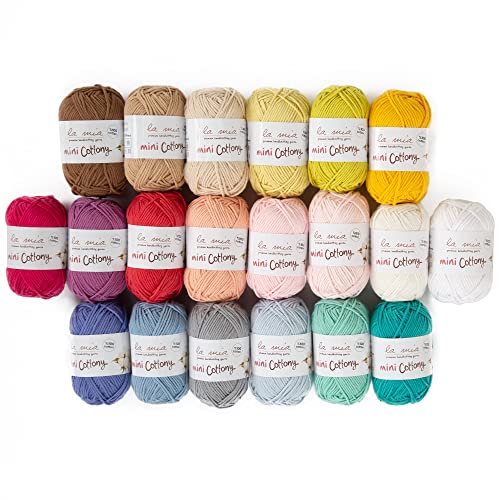



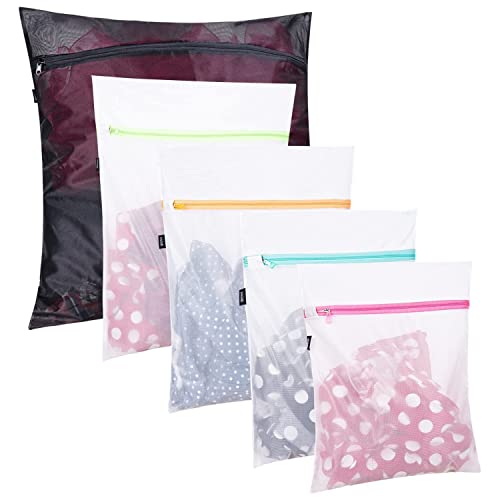


![Read more about the article Can You Quilt Without a Sewing Machine? [Here’s How]](https://craftsbliss.com/wp-content/uploads/2020/11/Sewing-a-quilt-with-quilting-machine-500x333.jpg)
